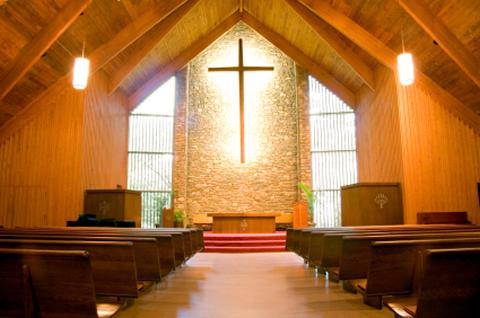
Kingdom Community
The most accurate term I can find to describe what Jesus is building is Kingdom Community. I am not the one who coined this term, although I wish I did. I first heard this term used by Congress WBN and its founder Dr. Noel Woodroffe several years ago. The term forced me to think outside of the traditional paradigm of “church” to discover a much richer meaning behind what Jesus wanted to build, which is one of the dynamics of new vocabulary. It jolts your mind into grasping and understanding a new concept.
Based upon what we have already discovered regarding the etymology of the word ekklēsía, as well as the context in which it was used both in the Septuagint and, more specifically, by Jesus, the word ekklēsía can be defined as a group of Kingdom citizens called out of the world and knit together through a divine principle as God’s Kingdom Community to legislate, adjudicate and effectuate the King’s – God’s – divine will and purpose in the earth. The word “Kingdom” must be inserted into the definition for two reasons:
1) Jesus made this divine connection and relationship between His Ekklesia and His Kingdom abundantly clear (Matt. 16:18, 19).
2) The Greek understanding of ekklēsía was based upon a democratic system of government (the Greeks being the original architects of the democratic framework). This democratic system is antithetical to true Kingdom architecture and is clearly not the principle Jesus – or the architects of the Septuagint – was trying to convey. We don’t assert or promote the will of the ekklēsía (by popular/majority vote) or the will of the people, but the will of God, regardless of unpopularity or differences of personal opinion.
Although the words “assembly” and “congregation” (compared to the word “church”) provide a much better definition of the word ekklēsía, which is quite obvious from the way the word is used throughout the Scriptures, these words can tend to be a little misleading. You will remember we pointed out that the literal or most basic definition of the word ekklēsía is the called out. The principle we need to keep in mind is that while “assembly” or “congregation” give the obvious connotation of being gathered together, the gathering, assembling or congregating is first to God in a spiritual or unseen dimension (Global Kingdom Community transcending time and space), and then second with each other in a physical or visible dimension (Local Kingdom community within a geographic area).
We already discovered after examining what Jesus is building that it is primarily of a spiritual nature. Jesus obviously wasn’t saying that He was building a huge physical gathering of people in Jerusalem as the full meaning and intent of His declaration regarding His Ekklesia. And since he used the word in the singular, He obviously wasn’t referring to other local congregations being physically gathered elsewhere.
In the Septuagint the word ekklēsía was applied to the congregation of Israel even when they were not formally gathered for their sacred meetings or worship. It means that even while they were lying in their tents at home they were still considered God’s ekklēsía. The point is that Jesus’ Ekklesia continues to be His Ekklesia even when they are not physically gathered. You don’t just revert to an ordinary individual or somehow become disconnected from His Body when the meeting is over or the doors of the building or meeting place are closed.
The term cannot be applied to a building, religious service or activity, or even the limited sense of a physical gathering, because then the ekklēsía would no longer be the ekklēsía when the gathering was over. The Body of Christ remains the Body of Christ even if they are not present with each other. The key definition is “called out”. You can be called out without necessarily being physically called together. We don’t become dismembered parts of the Body when we are not gathered together as a unit.
Ekklesia communicates a spiritual dynamic where there is a synergistic interfacing and interconnecting of our lives that go beyond anything we can visibly comprehend, and which extends beyond religious gatherings or activity. This does not mean that physical gatherings as localized expressions of Jesus’ ekklēsía are somehow wrong or invalid as some incorrectly teach, because it is quite obvious that such a dimension is strongly implied by the term. As I remember, the promise of the Spirit was given to those who were physically gathered together in one place, not to mention the command given by the author of Hebrews regarding “not forsaking the assembling of ourselves together”(Acts 2:1-4; Heb. 10:25).
Individualism and isolation run counter to the concept of true Kingdom community, and is not what we are seeking to espouse here. The point we are trying to make is that placing an emphasis solely on the physical or biological gathering of people within the context of a religious service or activity is to severely limit or misconstrue Jesus’ original meaning and intent, as well as the actual truth that He was seeking to convey.
Confronting The Error
It is for this very reason that many instructions and imperatives given to us by God through His anointed apostles and prophets in Scripture have been relegated to “church meetings” and “church buildings”. Controversial issues such as “the authority of women in the church” have been fiercely debated for centuries from a “church service” approach rather than from a Kingdom perspective that acknowledges God’s divine order in creation and recognizes that the woman’s function remains consistent regardless of the context (family, Kingdom community, or nation).
It is not only frowned upon but considered utterly profane to cuss in “church”, yet few of us would have any inhibition cussing almost anywhere else, especially if we were provoked. The gifts of the Spirit and manifestation of God’s presence are expected in “church” meetings, but not anywhere else. As a result of this dichotomy we have created two separate lives – one for “church” and one when we’re not “in church”. And then we wonder why the world calls us hypocrites.
I know religious leaders who preach and teach a lot on “spiritual authority” and on being willing and obedient with regard to leadership, yet they are known to frequently and willfully break the speed limit, even having received several speeding tickets for violations, because in their minds the principle of “authority” only applies “in the church” or in their homes (where they are the authority), and not anywhere else, least of all local city, county or state laws. Some have even installed radar detectors in their vehicles as if to say, “Laws are meant to be broken so long as you’re careful not to get caught.” Yet any similar type of attitude is strongly condemned “in church”!
We have made our buildings and our services the central focus of our worship. For most congregations, a very large portion of their income is applied towards building expenses – including acquisition, development, maintenance, mortgage, utilities, etc. Beautiful architectural structures are erected with state-of-the-art equipment and modern luxuries, yet there can still be dozens of families living below poverty and receiving little to no assistance even though they regularly attend the services and tithe of their meager incomes (but that’s for another topic).
Interestingly enough, neither Jesus nor the Early Ekklesia built or owned any particular building dedicated to worship. Jesus and his disciples met primarily on the mountainside, the seashore, a boat, or anywhere else that was convenient for such a gathering. Jesus did teach and minister in the temple and synagogues – established places for worship – yet, as far as we know, He was not the ruler or owner of any synagogue. Jesus and His disciples didn’t have the luxury of owning their own facility or consistently meeting in any building, yet they were able to successfully impact and transform their entire region and the world.
When Saul was intent on persecuting the ekklēsía in Jerusalem, precipitating the scattering of believers throughout the surrounding regions of Judea and Samaria, it wasn’t done by him entering into a great megaplex or building and starting to haul away the worshipping saints gathered there.
1 Now Saul was consenting to his death. At that time a great persecution arose against the church which was at Jerusalem; and they were all scattered throughout the regions of Judea and Samaria, except the apostles. 2 And devout men carried Stephen to his burial, and made great lamentation over him. 3 As for Saul, he made havoc of the church, entering every house, and dragging off men and women, committing them to prison (Acts 8:1-3 emphasis mine).
You’ll notice that Saul entered into the believers’ homes, because this was their primary meeting place. They were not “house churches” like many of us incorrectly refer to them. They were the ekklēsía who lived and gathered in houses (homes) – there’s a difference! The account mentions two times the word “church” (ekklēsía) in the singular; however, it says Saul entered into “every house” (plural). They were not defined as God’s ekklēsía because of being identified with a physical building or because they were physically gathered together as one unit for some type of religious activity or service. Even when they were scattered or imprisoned they remained the ekklēsía. They were the ekklēsía at Jerusalem because they were called out and set apart unto God, as they utilized their own homes for worship, fellowship and teaching (Acts 2:46; 5:42; 20:20 with Rom. 16:5; 1 Cor. 16:19; Col. 4:15; Phil. 1:2).
Again, these early believers had no building of their own, no internet, telephone, printing press, email, automobiles, airplanes, computers, television, radio or satellite, or even New Testament scriptures, yet they were able to powerfully impact their region and the world until even Rome and its pagan practices were influenced by their ministry. How is it that today you can walk into some of the most depraved cities of America and find a “church” (building) almost on every corner? Something is terribly wrong! We have substituted “church” for true Kingdom community.
Jesus and the Early Ekklesia didn’t have “services” or structured gatherings simply to “have church”. I personally wouldn’t walk across the street to attend some of the services held in “churches” today, and I mean that quite literally. We gather together, say a short prayer, sing a few fast songs, a couple of slow songs, make announcements, collect the offering, and then sit to listen to a 40-45 minute sermon only to do it again the next week. Meanwhile, we focus on filling the pews (or fancy cushioned seats) without ever impacting our cities or region with the Kingdom of God.
When God’s Kingdom community gathers together, it’s not to play or have “church”! We’ve spent so much time, energy and resource on “having church” that nobody knows how to be the church, or more accurately, a true Kingdom community.
Our gathering together must be strategically focused upon connecting heaven to earth and bringing God’s Kingdom rule to bear upon our territory. Our focus should always be upon advancing God’s Kingdom – and whatever it takes to effectively do that should be the focus of our meetings. Therefore, we are not interested in creating better meetings, preaching better sermons, or constructing better services. Of course, teaching proper doctrine, relating as a community, entering into covenant, and powerful, deliberate, intelligent and purposeful prayer are highly important and effective in fueling a powerful Kingdom advance, but it must be approached from a Kingdom mindset (Acts 2:42).
When services are performed purely through tradition, a desire to entertain, fill the pews, make money, pay the bills, satisfy the board, compete with another colleague or “church” down the street, boost your fame, name or status, or simply exist because everybody else is doing it, that is a religious system and not a true ekklēsía – Kingdom community!

Leave A Comment